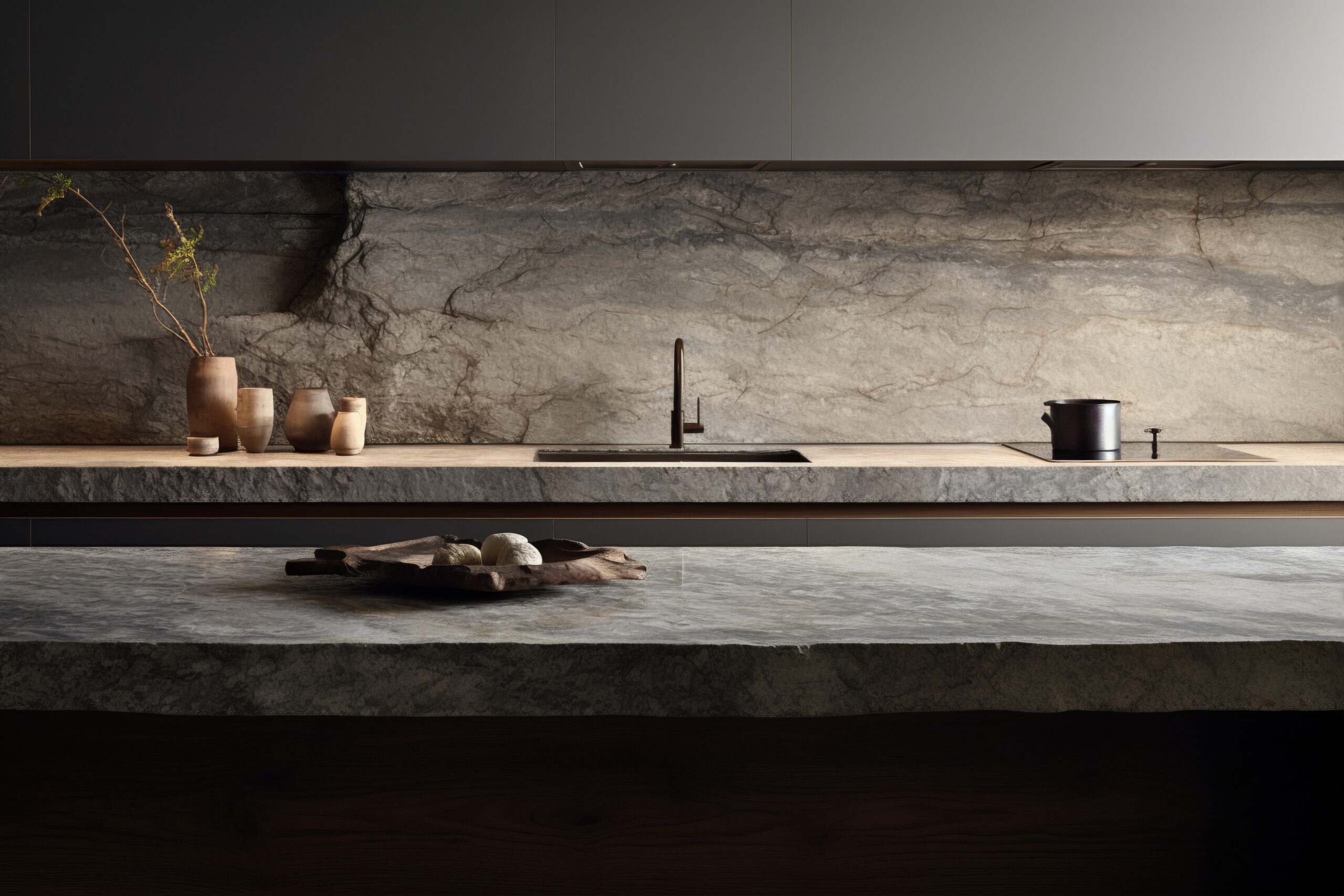Concrete countertops have become a coveted design element, captivating homeowners with their unique industrial aesthetic and durability. However, before you get swept away by the charm of a concrete masterpiece, it’s crucial to understand the potential downsides. This article will explore problems with concrete countertops, helping you make an informed decision. We’ll also address your questions about cost, comparing concrete vs quartz countertops, and explore the pros and cons of concrete countertops to give you a well-rounded perspective
The Shadow Side of Concrete Countertops: Potential Problems
While undeniably beautiful, concrete countertops come with inherent characteristics that can translate to challenges:
- Porous Nature: Unlike non-porous materials like quartz, concrete is naturally porous. This means it can absorb liquids like wine, oil, or acidic substances, potentially leading to staining. Meticulous sealing and maintenance are essential to minimize this issue.
- Prone to Cracking: Concrete is susceptible to cracking, especially over larger surface areas or due to improper installation or movement in the substructure. Cracks not only detract from the aesthetics but can also harbor bacteria and become a breeding ground for mold.
- High Maintenance: Unlike low-maintenance quartz, concrete requires regular sealing< to maintain its stain resistance. Spills need to be cleaned up promptly to prevent etching or staining.
- Weight Considerations: Concrete is a heavy material. Your cabinets and floors need to be able to support the substantial weight of concrete countertops, potentially requiring reinforcement during installation.
- Cold and Unforgiving Surface: Concrete can feel cold to the touch, which might be unpleasant for some homeowners.
Cost Comparison: Concrete vs. Quartz Countertops
- Concrete: While the material itself might be more affordable than quartz, the cost can vary depending on factors like size, thickness, color, and surface finish. Installation costs can also be higher due to the specialized skills required. Expect a range of $60 – $150 per square foot (installed).
- Quartz: Quartz countertops generally fall within a price range of $70 – $200 per square foot (installed). However, the price can vary depending on the brand, color, and pattern.
Pros and Cons of Concrete Countertops at a Glance
Pros
- Unique Aesthetic: Offers a one-of-a-kind, modern industrial look.
- Durable: Concrete is incredibly strong and can last a lifetime with proper care.
- Heat Resistant: Highly resistant to heat damage from cookware.
Cons
- Porous and Prone to Staining: Requires regular sealing and meticulous maintenance.
- Susceptible to Cracking: Can crack over time due to various factors.
- High Maintenance: Needs regular sealing and careful cleaning to prevent stains.
- Cold and Unforgiving Surface: Can feel cold to the touch.
- Heavy Weight: May require reinforcement of cabinets and floors.
Making an Informed Decision
Concrete countertops offer undeniable beauty and character, but they come with a unique set of challenges. Weighing the pros and cons of concrete countertops alongside potential problems with concrete countertops will help you decide if they’re the right fit for your lifestyle and preferences. If you’re looking for a low-maintenance option, quartz countertops might be a better choice. However, if you’re drawn to the unique aesthetic and willing to invest in proper care, concrete countertops can be a stunning and long-lasting addition to your kitchen.

